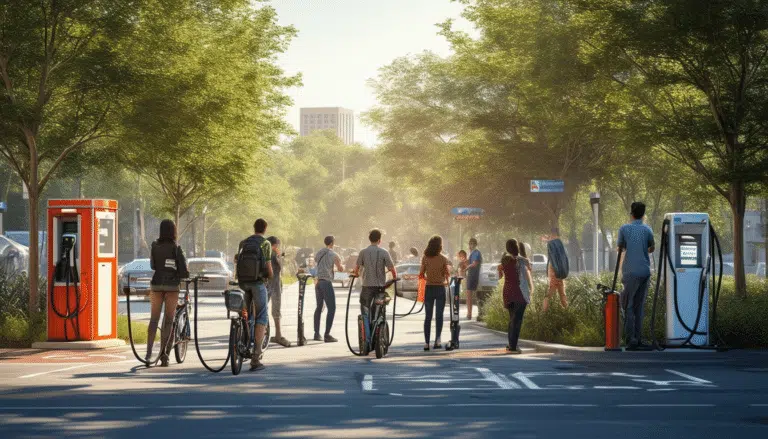Practical maintenance practices that help save gasoline

Gasoline savings is a priority for many drivers looking to cut costs and minimize their environmental impact. One of the most effective ways to achieve this is through proper maintenance practices in the vehicle. Keeping the car in optimal condition not only improves its performance but can also lead to significant cuts in fuel consumption. With simple and regular measures, it is possible to optimize gasoline usage and contribute to environmental conservation without sacrificing the efficiency of the car.
Proper maintenance of a vehicle not only extends its lifespan but also plays a crucial role in reducing gasoline consumption. Implementing certain maintenance practices can lead to considerable savings, thus contributing to more efficient and sustainable driving. Below are several techniques that will help you optimize your car’s performance and reduce fuel expenses.
Regular Air Filter Change
A clean air filter is essential for the proper functioning of the engine. A dirty filter can obstruct airflow, resulting in an inefficient mixture of air and fuel. This can cause a loss of power, forcing the engine to work harder and consequently consume more gasoline. Changing the air filter according to the manufacturer’s recommendations is a simple yet highly effective practice.
Tire Pressure Checks
The correct tire pressure not only enhances safety but also directly affects fuel consumption. Underinflated tires increase rolling resistance, causing the engine to work harder to move the vehicle, thus raising gasoline consumption. It is advisable to check tire pressure at least once a month and keep it within the recommended range.
Exhaust System Maintenance
An exhaust system in optimal condition allows for the efficient evacuation of gases generated during combustion. Performing periodic checks helps detect blockages or leaks that can affect engine performance. A clean exhaust system ensures that the engine operates at its maximum efficiency, contributing to lower fuel consumption.
Fuel Adjustments
Using high-quality fuel is fundamental for engine performance. Low-quality fuels can cause buildup in injectors and the combustion system, which can negatively impact engine efficiency. Utilizing fuels recommended by the manufacturer optimizes vehicle operation and reduces consumption.
Efficient Driving and Its Relation to Maintenance
The way you drive is also related to proper vehicle maintenance. Adopting habits such as obeying speed limits, avoiding hard accelerations and sudden braking, as well as maintaining a steady speed contribute to significant gasoline savings. Additionally, performing regular maintenance, such as oil changes and ignition system checks, is crucial to ensure the vehicle is ready for efficient driving.
Other Maintenance Recommendations
In addition to the mentioned practices, it is important to consider other measures. For example, keeping the engine clean and in good condition, as well as making regular adjustments to the fuel injection system. These actions not only help save gasoline but also improve the overall performance of the vehicle. For more details on how tire condition influences gasoline consumption, visit this page.
Conclusions on Maintenance and Fuel Savings
By implementing proper maintenance practices, considerable savings on gasoline consumption can be achieved while contributing to environmental care. For more tips on how to save fuel while driving, consult this link.
Remember that regular maintenance is key to reducing fuel expenses. For more information on this topic, feel free to visit this resource.
Lastly, the condition of your tires can be a decisive factor in gasoline consumption. For more details, check this comprehensive guide.
Proper maintenance of a vehicle not only ensures its durability but also plays a crucial role in reducing gasoline consumption. A well-maintained car allows for optimal engine performance, which directly translates to lower fuel expenses. One of the most important aspects to consider is the regular air filter change. A clean air filter improves airflow to the engine, meaning it can operate more efficiently and consume less gasoline.
Furthermore, it is essential to keep the tires at the correct pressure. Underinflated tires generate greater rolling resistance, which forces the engine to work harder and consume more fuel. Performing periodic checks and ensuring the tires are properly inflated can lead to significant savings in the long run.
The regular inspection of the exhaust system is another maintenance practice that should not be overlooked. A faulty exhaust system can affect engine performance, increasing fuel consumption. Ensuring that combustion gases are evacuated smoothly is vital for maintaining vehicle efficiency.
Additionally, efficient driving and route planning contribute to strategies that help save fuel. Avoiding sudden accelerations and abrupt braking reduces wear on the engine and lessens gasoline consumption. Incorporating habits like these maintenance practices not only results in economic benefits but also contributes to sustainability by helping reduce the carbon footprint associated with vehicle use. Thus, keeping the vehicle in excellent condition becomes a fundamental strategy for achieving significant gasoline savings.




